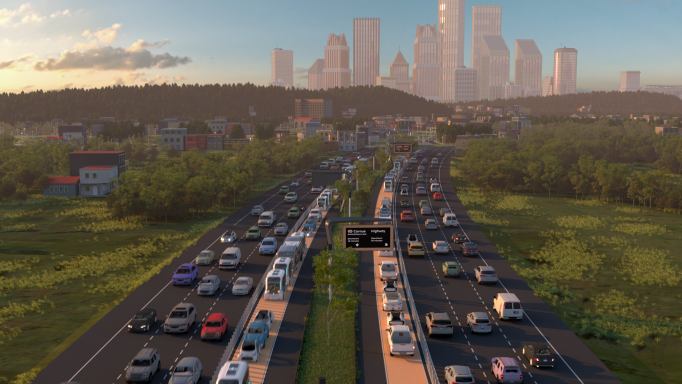
Photo: cavnue
Michigan law paves way for autonomous vehicle corridor
02 August 2022
by Christopher Carey
Michigan Governor Gretchen Whitmer has authorised a law that gives Michigan’s Department of Transportation (MDOT) the power to designate some roadways and driving lanes for the use of autonomous vehicles (AVs) and permits the agency to work with a third party to develop such technology.
In 2020, connected infrastructure firm Cavnue was selected to develop a 40 kilometre corridor between Ann Arbor and Detroit, which is now set to become the state’s first major artery designed specifically for autonomous vehicles.
“We are thrilled to continue growing Michigan’s leadership by setting new global standards for automotive safety, mobility infrastructure and smart cities, through policies like Senate Bill 706,” said Kathryn Snorrason, Managing Director, Michigan Office of Future Mobility and Electrification.
While there has been a significant investment in AV technology over the past five years, relatively little has been done in building the infrastructure needed for vehicles to communicate with each other or their surroundings.
More Roads?
Details on whether the corridors will use existing roads or new builds, as well as the types of vehicles that will be permitted, have not yet been established.
“It is certainly possible that an existing right of way could be used,” a spokesperson from Michigan’s Office of Future Mobility and Electrification (OFME) told Cities Today.
“The impact on existing traffic will be a central consideration.”
The new law also permits the state to work with third party operators to charge a ‘user fee’, which OFME say “would be used by the roadway or lane system operator to carry out functions related to the roadway such as to design, construct, manage, operate or maintain the automated vehicle roadway system.”
“The fee will be comparable to an entry fee such as to a public event or a facility charging for admission,” the spokesperson added.
“Just as we would not expect entry into a movie theatre when we have not bought a ticket, the roadway or lane use will also carry the expectation of a ticket or fee.”
Costs
Cavnue is currently performing a feasibility analysis and business case for the project, the firm’s CEO Tyler Duvall told Cities Today.
“[This is] at our own cost and expense – to date, there has been no monetary investment by the state nor [is] any planned at the moment.”
On the possibility of a user fee, Duvall added “The use of user fees is not required under this bill, but it would allow for a fee to be enacted on drivers that choose to utilise the benefits of automated vehicle roadway (AVR) technology.”
Cavnue declined to disclose the cost of the project.
Image: Cavnue








